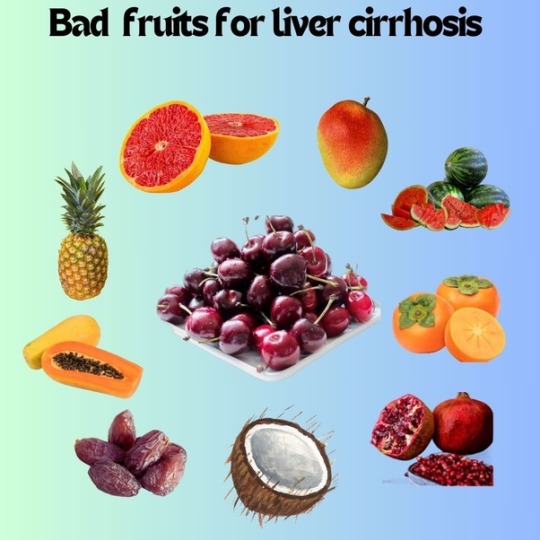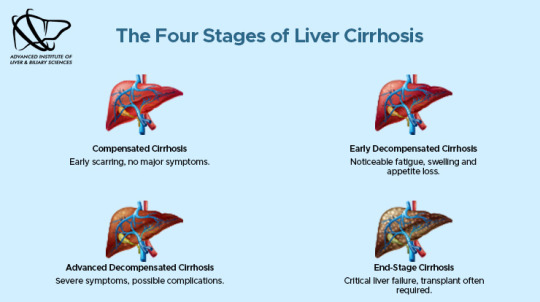#Liver health
Explore tagged Tumblr posts
Text
Me and my partner just tried kombucha for the first time together
Got out some white wine glasses and everything
I do not drink alcohol so i felt quite fancy drinking out of a wine glass 😆☺️
We wanted to try some because we heard about the benefits, probiotics for gut health, liver health, heart health and possibly also the killing of bad bacteria.
But also because we thought the process would be quite fun, a new healthy hobby.
And I thought it might be a nice replacement for soft drinks.
I thought I wasn't going to like it, but it's not bad!
We are going to try and make our own scoby for it.
I'll update when we get there ☺️
If anyone has experience with this process and has tips or ideas please let me know!🩷
#personal#kombucha#gut#guthealth#healthy gut#probiotics#liver health#heart health#fermentation#fermenting#tea#holistic health#holistic#crunchy#crunchy mom#crunchymom#homemaker#homemaking#farmcore#egalitarian#cottagecore#traditional#femininity#feminine#cute#my partner
11 notes
·
View notes
Text
How Ginger Can Enhance Liver Health: An In-Depth Guide for a Healthier Life
In the realm of holistic health, the liver is often overlooked, despite its critical functions in the body. This organ, which performs more than 500 vital processes daily, is the powerhouse behind detoxification, digestion, and metabolism. For those seeking to maintain optimal liver health, nature has provided a potent ally: ginger. This humble root, with its warm, spicy flavor and aromatic…
9 notes
·
View notes
Text
which fruits are bad for liver cirrhosis patient?
A diseased liver may cause any number of serious medical conditions. The liver is a vital system that helps remove waste material and chemicals from the body. A number of fruits are bad for the liver, particularly as participated in. The following ten fruits, if they participate, may cause harm to the liver:

1. Grapefruit: Some drugs' the capacity for the liver to break down them could be damaged by chemicals generated by grapefruit. Alcohol development in the bloodstream can arise from this, which can cause harmful side effects.
2. Papaya: The high natural sugar level in papaya may prove difficult for the liver to digest, especially in people that have diabetes or liver damage.
3. Pineapple: a type of bro, a chemical found in pineapple fruit, can thin a person's blood to keep it from clots. People who use blood-thinning medications or have liver disease may be badly changed by that.
4. Mango: This fruit has a high glycemic index, which means it can quickly raise blood sugar values. This may stress the liver and cause symptoms.
5. Coconut: The high content of saturated oils in coconut might raise cholesterol and stress the liver. Obesity in coconut food can result in fatty liver disease.
6. Dates: Due to their high sugar content, dates can quickly raise blood sugar levels. This may strain the liver and cause obesity, both of which over time may result in liver damage.
7. Cherries: Due to their high level of sugar, cherries can be hard on the liver to handle, specifically for people who already have diabetes or liver disease
8. Persimmons: When consumed in excess, tannins from persimmons can be detrimental to the liver. Cirrhosis and liver damage may result from this.
9. Pomegranate: Compounds found in pomegranates can prevent the liver from effectively breaking down certain drugs. Drug collection in the circulatory system may result from this, which may have harmful side effects.
10. Watermelon: High in sugar, watermelon can be hard on the liver, especially for people with diabetes or liver disease. Consult a healthcare professional for personalized advice based on your specific health condition. Wishing you a swift recovery. https://bit.ly/3O9IhoF
7 notes
·
View notes
Text
Alcohol is an inflammatory shit storm to your brain, liver, gut, and body. It takes 72 hours to leave your system. During that time it crashes your dopamine, making you feel low. If you choose to drink, do it sparingly and follow it with plenty of water, green tea, high quality protein, lots of fruits & veggies, hydrating foods, healthy fats like nuts and seeds, and take a cold shower.
#alcohol #drinks #health #healthtips #heathy #brain #brainhealth #liverhealth #mentalhealth #healthylifestyle #healthyliving #healthyfood #nutrition #wellness #weightloss #healthyeating #healthcare #healthandwellness #healthiswealth #healthylife #stayhealthy #hangover #diet #food #selfcare #beer #wine #drinking #booze #whiskey
#alcohol#inflammation#health#nutrition#health tips#mental health#drinks#lifestyle#healthy#healthy lifestyle#healthy living#gut health#brain health#liver health
31 notes
·
View notes
Text
12 Reasons to drink celery juice

8 notes
·
View notes
Text

Anti-Cancer Properties of Dandelion Root
Extracts from Dandelion Root have shown to have potent cancer-fighting potential in many types of cancer, including Liver, Colon, Stomach and Breast Cancer. Reduction in Inflammation and affects in tumor progression have also been observed with Dandelion Root.
Supplementing with ample amounts of the right Omega fatty acid and the right liver related Mineral can optimize Dandelion Root's therapeutic effect in helping to reverse disease patterns.
Contact your Holistic Physician today to see if Dandelion Root will help expedite Your Healing!
#holistic health#holistic medicine#holistic healing#cancer#liver health#colon cancer#breast cancer#dandelion#natural healing
15 notes
·
View notes
Text
#Ahmedabad#Alfa Gastro & Liver Care#dr Vatsal Mehta#LFT#liver blood tests#liver disease diagnosis#liver enzymes#Liver function tests#Liver Health#liver screening
1 note
·
View note
Text
Your liver is one of the hardest-working organs in your body, performing over 500 vital functions. From detoxifying harmful substances to producing bile for digestion and storing essential nutrients, the liver is central to your overall well-being. Despite its importance, liver health is often overlooked until serious issues arise. Dr. RC Soni, the best Liver Doctor in Faridabad, emphasizes the importance of paying attention to your liver and taking proactive steps to keep it healthy.
1 note
·
View note
Text
LivPure: A Revolutionary Solution for Optimal Liver Function and Fat-Burning In today’s fast-paced world, many struggle with low energy, stubborn belly fat, and a sluggish metabolism despite rigorous diets and exercise routines. The root cause of these issues often lies in compromised liver function. Enter LivPure, a groundbreaking dietary supplement designed to cleanse your body, boost…
#buy Liv Pure#cleanse#detox#diet#energy#health#Liv Pure#Liv Pure benefits#Liv Pure side effects.#liver health#metabolism#Natural Ingredients#reviews#supplement#weight loss#wellness
1 note
·
View note
Text
Green Tea: Your Cup of Antioxidants, Your Elixir of Health
“Let food be thy medicine and medicine be thy food,” proclaimed the ancient Greek physician Hippocrates. Centuries later, this wisdom resonates as we explore the remarkable health benefits of green tea, a beverage that seamlessly blends the realms of nourishment and healing. Beyond its delicate flavor and soothing aroma, green tea harbors a treasure trove of antioxidants, those valiant defenders…
#antioxidants#brain health#cancer prevention#catechins#EGCG#green tea#health benefits#Healthy aging#heart health#immune system#liver health#polyphenols#skin health#weight management
2 notes
·
View notes
Text
Understanding the Signs of Liver Disease: What You Need to Know
Have you ever glanced in the mirror and thought, “Is that a hint of yellow in my skin?” If you’re nodding your head, you might be surprised to learn that it could be a sign of liver disease. But don’t worry! Let’s explore this topic together in a way that’s easy to understand and, dare I say, a little fun. What is Liver Disease Anyway? Liver disease refers to a variety of conditions that can…
#Dr. Fareha Jamal#Fatty Liver#Health#health advice#health tips#jaundice#Liver#Liver disease#liver health#Maryam Jamal#nutrition#wellness
0 notes
Text
Saturated fats are primarily animal-based fats (with the exception of some plants). Unlike healthy unsaturated fats that are liquid at room temperature, saturated fats are solid at room temperature. Saturated fats are the inflammatory fats, while unsaturated fats are anti-inflammatory. Regularly consuming saturated fats may raise cholesterol and increase risk of heart disease. It can also contribute to high blood sugar and fatty liver disease. If you consume it, it is recommended you do not exceed 13 grams/day. Lean towards your anti-inflammatory and brain health fats, the unsaturated fats.
#highbloodsugar #diabetes #bloodsugar #insulin #cells #cellhealth #saturatedfats #animalfats #glucose #muscle #hearthealth #unsaturatedfats #healthyfats #brainhealth #antiinflammatory #healthtips #nutrition #omega #fattyliver #fats #cholesterol #weightloss #meat #foodisinformation #healthyeating #disease #health #healthy #healthyliving #healthylifestyle
#blood sugar#Diabetes#heart health#stroke#heart attack#Health#Heathy#Health tips#cholesterol#LDL#HDL#liver health#fatty liver#liver disease#fats#healthy fats#unhealthy fats#saturated#saturated fats#unsaturated#unsaturated fats#heathy living#healthy habits#healthy lifestyle#diet#Nutrition#brain health#Inflammation#antiinflammatory
9 notes
·
View notes
Text

Learn about the four stages of liver cirrhosis, its symptoms, causes and treatment options. Discover actionable insights to take control of your liver health.
0 notes
Text
youtube
#Traditional Chinese Medicine#Hepatocellular Carcinoma#TCM Research#Liver Cancer Treatment#Herbal Medicine#Acupuncture Therapy#Integrative Oncology#Cancer Bibliometrics#Oncology Trends#Liver Health#Alternative Medicine#Cancer Prevention#TCM Herbs#Medical Bibliometrics#Cancer Research#HCC Survival#TCMTherapy#Liver Cancer Research#Traditional Medicine#Phytotherapy.#Youtube
0 notes
Text
5 Key Reasons to Try Manjistha Tablets for Your Health丨Ayumantra

Ayurveda means the science of life and is a natural science that requires balancing in the body. One such remedy is Manjistha (Rubia cordifolia); this is a wonderful herb that is used in Ayurveda to cure many diseases.
The Manjistha tablets we offer to you are specifically made to capture the workings of this herb most efficiently. Here are the manjistha tablet’s uses and why you should consider incorporating them into your daily wellness routine:
Here are the uses of Manjistha:
🌟 Promotes Skin Health:
Manjistha is a natural blood purifier that is effective in cleansing the body. It assists in treating skin disorders such as acne, dark spots, and skin redness so that your skin will glow again.
💧 Supports Lymphatic System:
The lymphatic system plays a critical role in the body to detoxify and build up the body’s immune systems. Manjistha is mainly used to stimulate and cleanse the Lymphatics, which helps in maintaining the vigor of the body.
🛁 Aids in Detoxification:
It is used with pride to purify the liver and the kidneys and in the expulsion of toxins from the system.
Cleansing the body need not be associated with chronic diseases, and a daily boost in energy levels is one of the long-term benefits obtained as a result.
⚖️ Balances Pitta and Kapha Doshas:
For balance as a key to good health in Ayurveda, the doshas need to be balanced.
Manjistha brings down Pitta and Kapha, reducing inflammation, heat disorders, and congestion, and bringing your body back to homeostasis.
🌿 Natural Anti-inflammatory Properties:
Due to its anti-inflammatory1 properties, Manjistha is a great help with joint and muscle problems.
This also helps to calm down digestive problems and many other inflammatory diseases.
➧ Strengthen your knowledge of Manjistha with our blog on :
7 Ways to Get the Most Out of Manjistha Tablets
Quick View of All the Benefits:
Promotes Skin Health:
Purifies blood and addresses acne, dark spots, and redness for radiant skin.
2. Supports Lymphatic System:
Detoxifies lymphatic channels, enhancing immunity and overall vitality.
3. Aids in Detoxification:
Cleanses the liver and kidneys, removes toxins, and boosts energy levels.
4. Balances Pitta & Kapha:
Restores dosha balance, alleviating inflammation and heat-related ailments.
5. Anti-inflammatory:
Eases joint discomfort, digestive issues, and inflammation-related conditions.
➧ There are more insights regarding Manjistha from us here; it’s: Manjistha, Indian Madder (Rubia cordifolia)
Closure:
Manjistha tablet's uses are described above and also in many ways. They are compounded from fresh and genuine pure herbs to ensure that we present you with the best solution for your health.
If you’re interested in liver clean-up, increasing immunity, or merely healthy skin, Manjistha is truly your one-stop life companion.
Start the journey toward your physical, spiritual, and psychological recovery. Visit ayumantra.ca to select from our entire list of Ayurvedic supplements today.
0 notes
